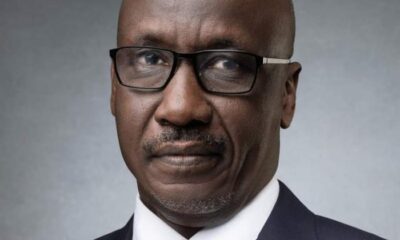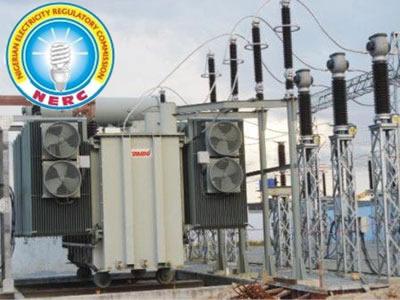Global Issues
Technically; I Prefer The War In Ghana To The Peace In Nigeria – The State of Ghana Superb To The So Called Big Brother Nigeria State; Analysis of a Nigerian Youth -By Edwin Alivionote


Edwin Alivionote
It is hardly surprising to hear among our teaming youths who constitute about 45% of the over 160million Nigerians, words that discredit the trust for the country’s advancement as an entity. Our fate in the nation has left little hope than can sustain our youthful patriotism. The clarion call to serve our motherland and obey her calls, seem to be a song sung for the gods of yesteryears. Torn between ethnic frontiers and religious interests, the youths of Nigeria have become diffused in loyalty based on personal aggrandizement arising from these value divides. With the infiltration of malfeasance into the fiber of public administration, no course for responsibility and duty towards national course is sorted, everyone stretches to strain its network of opportunities to drain the last of funds and resources that can be carted from the coffers of government.
The proceeds of non-patriotism have ‘blessed’ us with quantum suffering and our leaders earning the ‘ovation’ as the architect of this fate. The story of Nigeria is a tale that dates back to the 1960s but, today, I feel inclined to say, there was a country called Nigeria. We appear to be living within the boundaries of Nigeria, as the country itself is more vague than real. Peace and Unity reflects in all our emblems because, that is the mystery we sought to achieve for the amalgamated state united only by the Niger River.
Peace in Nigeria since 1960, is a deceptive psychology of the greatest beneficiaries of the Nigeria state- the looters of our treasury. They have studied the weakness in our bond and seek to exploit them whenever the need arise. The youths, the most vulnerable and useful tool in the Nigeria value chain are the prey of these vampires, benefiting from our woos. Nigeria, under the auspices of her political leadership lived a history of hope founded on deception for the ever increasing youths (hypnosis). They say united we stand and divided we fall. The unity of fifty-six (56) years has left the country a toddler long enough to rephrase the statement I guess; united we stand?
We have soared and graduated from phases of unbearable pains which have climaxed at a threat to national security. Our country has moved from marginalization to bureaucracy to abuse of powers, degenerating into the myriad of youthful violence that is almost uniformly dispersed across the states of Nigeria.
‘The Giant of Africa’ sounds like a code name for a defeated hero, relished with pride, since we have the truth internalized in our minds and the heartbeat resonates its rhythm. We fear in reality that, we possess only the face value of the title, while it is obvious we live in its mirage.
There, flanked by our border is a small African country called Ghana, a nation noble to pride herself amidst her challenges as a state, spoiled towards the attainment National recognition on a global scale. The same race that Kwame Nkrumah started in Ghana around 59 years ago about same frame of timing with the Nigerian founding fathers; Amadu Bello, Nnamdi Azikiwe and Obafemi Awolowo has left a difference that could be used to assess the call for a restructure of Nigeria.
Some analysts say Nigeria cannot be compared to Ghana, since Nigeria is big in comparison to Ghana with a population of less than 30million dispersed over a land mass of 238,535Km2 compared to the 160million Nigerians trapped within the spatial boundary of 923,768 Km2. If quality is the basis of modern assessment then, Nigeria ought to be big for something and not for nothing.
Education: the average Nigerian school cannot stand that of Ghana in terms of standard and global recognition all educational cadres inclusive, from the primary to the tertiary.
Economy: With the fact that Ghana economy is threatened by high government spending which has expanded its fiscal deficit over extended credit facility from IMF the Ghanaian Cedi is still firm to a dollar (3.97GHS to $1). Nigerian naira is N321.99 to $1. The GDP of Ghana per capital 1,858.24 USD while Nigeria had 3,005.51 USD GDP per capita as at 2013 making Ghana more promising technically when the resource and landmass are considered. Annual inflation in Ghana as at June 2016 accelerated to 18.9% 16.5% inflation is recorded of June in Nigeria the margin of 2.4% leaves far more Nigerians in economic hardship to Ghanaians.
Infrastructure: We could agree based on available landmass that Nigeria has an avalanche of infrastructure that puts Ghana on a micro infrastructural scale. But, when we look at the quality of our infrastructural development over the period of half a century, it is obvious we
Standard of Living: An excerpt from the World Bank Group portal on Ghana’s infrastructure states thus; Ghana has an advanced infrastructure platform when compared with other low income countries in Africa. The country’s coverage level for rural water, electricity, and GSM signals are impressive. A large share of the road network is in good or fair condition. Institutional reforms have been adopted in the ICT, ports, roads and water supply sectors. With the most pressing challenges lie in the power sector, where outmoded transmission and distribution assets, rapid demand growth and periodic hydrological shocks leaves the country reliant on high cost oil based generation.
Nigeria on the other hand, has had infrastructural growth which has been subjected to fraudulent contractors for implementation supervised by quacks or underfunded experts while sub-standard materials are utilized in the project development. The excerpt from Premium Times of 12th November, 2013 by Bamidele Ademola Olateju corroborates my stands on this; ‘…Nigeria and the dilapidated state of our country’s infrastructure confronts me in every state I visited. A lot can be inferred about the health of a nation going by the condition of its infrastructure. What does Nigerian infrastructure say about Nigeria? The unvarnished truth is that Nigeria has no infrastructure. At this point, Nigeria is held together by rusted iron, crumbling concrete and of course our national pastime-prayers.
Standard of living: The standard of living for an average Ghanaian has made the average Nigerian a prisoner in his homeland. The fact that public amenities are enjoyed by most Ghanaians coupled with functional public institutions has left them more dignified as citizens. The spate of hunger in Nigeria has brought in new vices into the dairies of the Nigerian youths. Unemployment and dependency ratio has worsened the income of the few working class, who are grossly underpaid to meet their personal requirements for the basic needs of food, clothing and shelter. More is still left to be envied concerning the Personal well-Being Index of Nigerians which continues to suffer deterioration since the elite seek to exploit resources from the domain of the poor to grease their needs and affluence.
Health: the medical doctors in Nigerians till date still travel to Ghana to take professional courses in Medicine and get various forms of certifications. The health care and services obtainable from Ghana has maintained a status that is preferred to Nigerian. The rural mortality, proliferation of fake and sub-standard drugs as well as poor distribution of health accompanied with highly inexperienced health personnel are the issues we have lived with. Our elite who can afford to travel to far away foreign lands to get the best of health attention are unfortunately the ones formulating our health policy. The cost of health in Nigeria is beyond the reach of the common man. Hospital shave been poorly equipped to aptly respond to emergency and save the lives of Nigerians. The government and society are willing to fund mortuaries and burial ceremonies than save a dying patient in need of medicare in Nigeria.
Environment: as an environmental expert I spend most of my working days trying to analyze the best way to manage the ruin of garbage that has become a common sight in our cities and towns. Even our engines, sewage and vehicular combustion have combined in proportion to constitute an environmental hazard to the inhabitants of the urban center. Under this heading, the Ghana-Nigeria comparison seem to vary just a bit as the same is a major issue for the Ghanaian environmental authorities to contend with but the Nigerian nation with more resources and land mass has been disgraced with same plight in spite the glaring remedies that are available as rescue.
Political Climate: The political climate of a nation popularly described as the heart of Africa has triggered course for worries among nations that wish the prosperity of the Nigeria state. The practice of politics of violence as well as disrespect for the laws of the land has opened the doors for youth restiveness, militancy, terrorism and political marginalization among others. While Ghana as a sister nation trends towards consolidating national patronage and patriotism Nigeria the supposed big sister still wallow in the divides of ethno-religious politicking. The use of public office for personal gains has become a norm and same has become a tool for amassing illicit wealth as well as unlimited powers to conquer perceived enemies and disloyalty.
If the leaders of Nigeria still see our country as enjoying relative peace, wonder the state of their conscience. I feared when I have had talks with many youths in Nigeria on the status of our unity within the prevailing economic and security challenges and got troubled responses. The respond of a Nigerian which I find to have an in-depth intonation is what has evoked this piece of writing. The assumed peace in Nigeria in contrast to the burning dis-unity in our hearts has made Ghana, a country of contemporary historical evolution, far more preferred even amidst its social challenges, economic hiccups and resource deprivation. Many Nigerian youths have lost fate in the country’s ability to retrace its route to advancing the general welfare of the so called ‘common Nigerian’. The morbid rush by youths and even the aged to leave the country, is a clear-cut sign of how the government has demoralized the engine of national development, the youths.




















